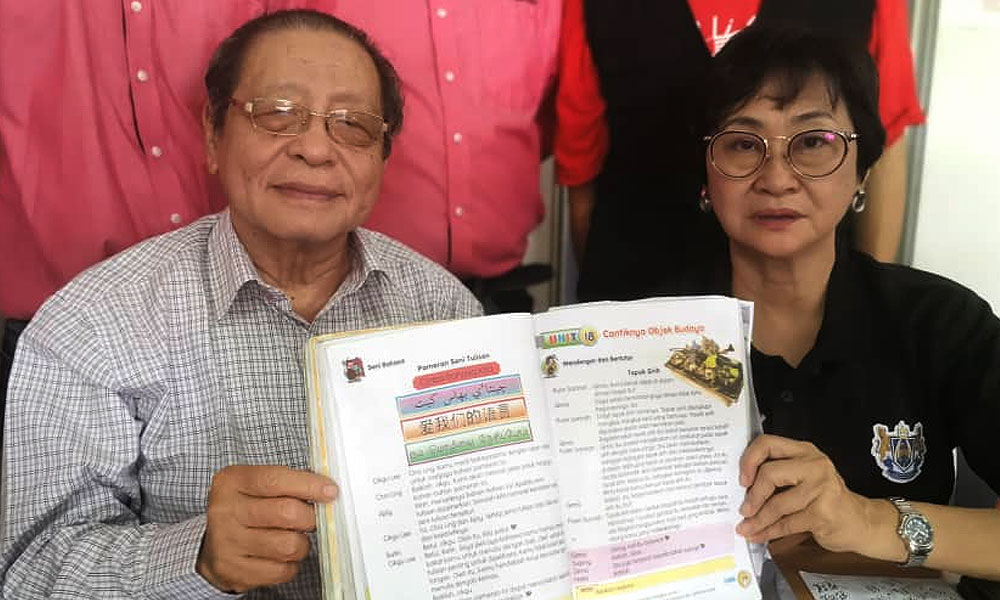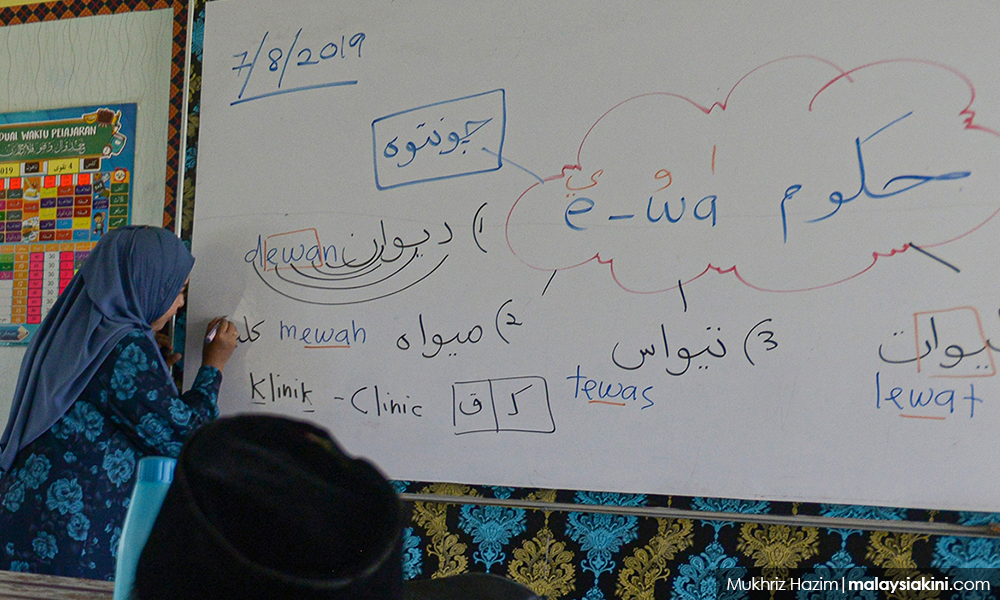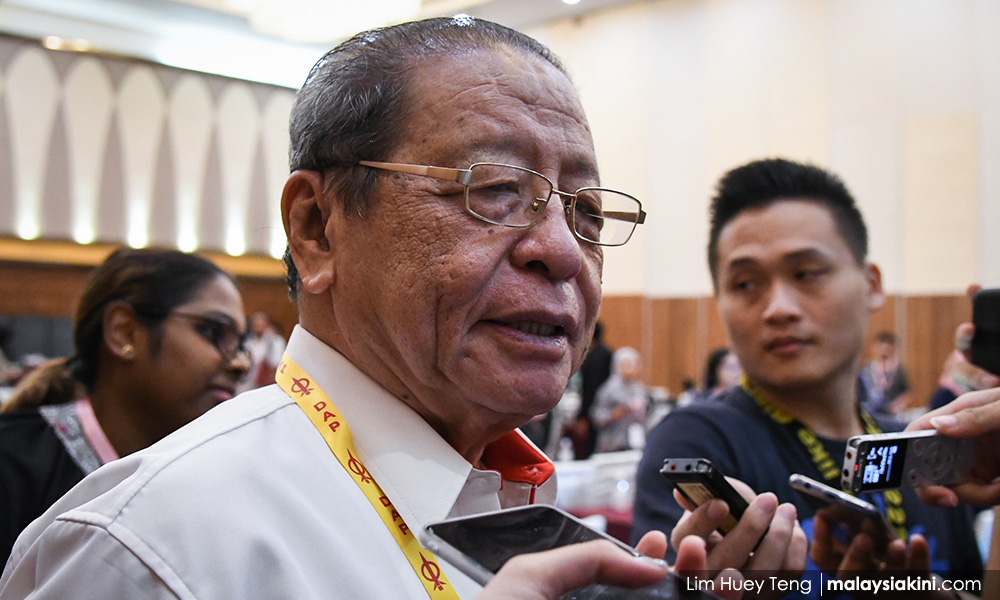
For the longest time, DAP veteran Lim Kit Siang has been the Chinese bogeyman. If you wanted to attack any elements of extremism in the Chinese community, you attacked him first.
When former premier Najib Abdul Razak wanted to revive his political base with the right-wing Malay factions, he made Lim the primary target, even though he wasn’t in the corridors of power.
When Abdul Hadi Awang and PAS wanted to resuscitate their political existence as it waned by the day, they pointed to Lim and his DAP to show the growing Chinese threat.
When any struggling politician wants to adopt identity politics to survive, they fling their criticism at Lim, saying that he is the worst of the Chinese in the Malaysian political mudslinging dictionary.
Notwithstanding the daily issuance of press releases highlighting his vision of a Malaysian dream where every person under the sun has a place regardless of race, religion, belief, and creed, the attacks were consistent.
The mainstream media, that was controlled by the previous establishment for decades, put Lim on the unsavoury pedestal. The topic of Lim is still the most effective for creating fear.
It doesn’t matter if the narrative has factual errors and falsehoods, whether it was filled with bad faith or infused with misinformation. Say it a million times and they will believe you.
Khat wide open
Only in the khat incident are we coming to terms with this.
The biggest surprise is not the intense uproar by the Chinese community, but the early position taken by Lim, who, by the logic of the Chinese bogeyman, should have been a staunch opponent.
Lim, the 'Chinese extremist', should have opposed the introduction of khat in the school syllabus on the basis of defending Chinese rights, and rode on the wave of dissatisfaction to appear a hero in the Chinese community.
A Chinese extremist wouldn’t pay attention to what is in the best interest of a multicultural society; instead, what should matter is cheap political posturing by standing as the protector of a fearful community that feels under siege.

The conservative faction in the Chinese community was primarily opposed to the introduction of khat because they fear a creeping Islamisation by the government.
Notwithstanding the incorrect conflation of khat and Islam, this fear was fuelled by decades of mistrust of the government, as well as the lack of mutual understanding between races.
Many in the Chinese community feel that the khat introduction is just the start of many more cultural takeovers and the dying of the Chinese culture in the country. It leads to the absurd lament of how Chinese children will now be forced to be Muslim or become Islamised.
To them, any compromise was a zero-sum game. Any gain by the majority race is a loss for the minority.
Three pages can’t destroy a community
But Lim doesn’t believe so.
He believes that three pages of khat calligraphy would not erode, let alone erase, Chinese cultural rights and their place in this country. He said, “If only three pages can make Chinese culture disappear, then I think there is a problem.”
Lim stuck to his vision of a Malaysian dream. He emphasised that although DAP has fought against assimilation through the decades, integration must be necessary to achieve that dream.
The Malaysian dream is about harnessing the best strengths of each culture without unreasonable fear of each other, and the walls of fear could only be broken down with knowledge, understanding, and empathy.

By taking this unpopular position, Lim was booed at his own constituency in Iskandar Puteri. When he tried to explain the position taken by DAP, he was the target for insults and slurs that seemed unnecessary for an old man of 78 to endure.
He calculated that he would lose the seat and DAP would collectively suffer a 30-40 percent haemorrhage in Chinese votes if an election were to be held tomorrow.
A populist politician, a shrewd politician who plays the game, would not have taken a head-dive into such a powder keg, let alone a veteran like Lim who has the Chinese sentiment at his pulse.
The nation at your pulse
But he inherited the nation’s spirit when he embarked on his Malaysian dream decades ago. Many of us might not agree with what he says and how he says it, but he is a man of resolve.
Compared to those who adopt Machiavellian tactics to no end, with no principled boundaries, Lim took on the most explosive issue since the 14th general election, and said precisely what the Chinese community didn’t want to hear.
I think about the photo of Lim taken by a supporter at a convenience store on the night of May 9, 2018.
The person who took the photo was shocked to find Lim in regular clothing and sandals, buying newspapers, when the whole country was celebrating Pakatan Harapan's victory.
All of the most powerful people in the country were in secret rooms horse-trading and lobbying for positions. But there he was, strolling in an ordinary place like nothing extraordinary had happened.
When asked repeatedly how he feels about overthrowing the coalition he has fought against for over 50 years, he talked about the victory of the nation and not his own. In every interview, you would never see Lim talk about himself, his feelings or show any emotions.
At first, I thought he was a robot. Now I think he is a statesperson, who saw the struggle for a better nation as a lifelong struggle – without self.
JAMES CHAI is a legal consultant and researcher working for Invoke, among others. You may reach him at jameschai.mpuk@gmail.com. - Mkini
No comments:
Post a Comment
Note: Only a member of this blog may post a comment.